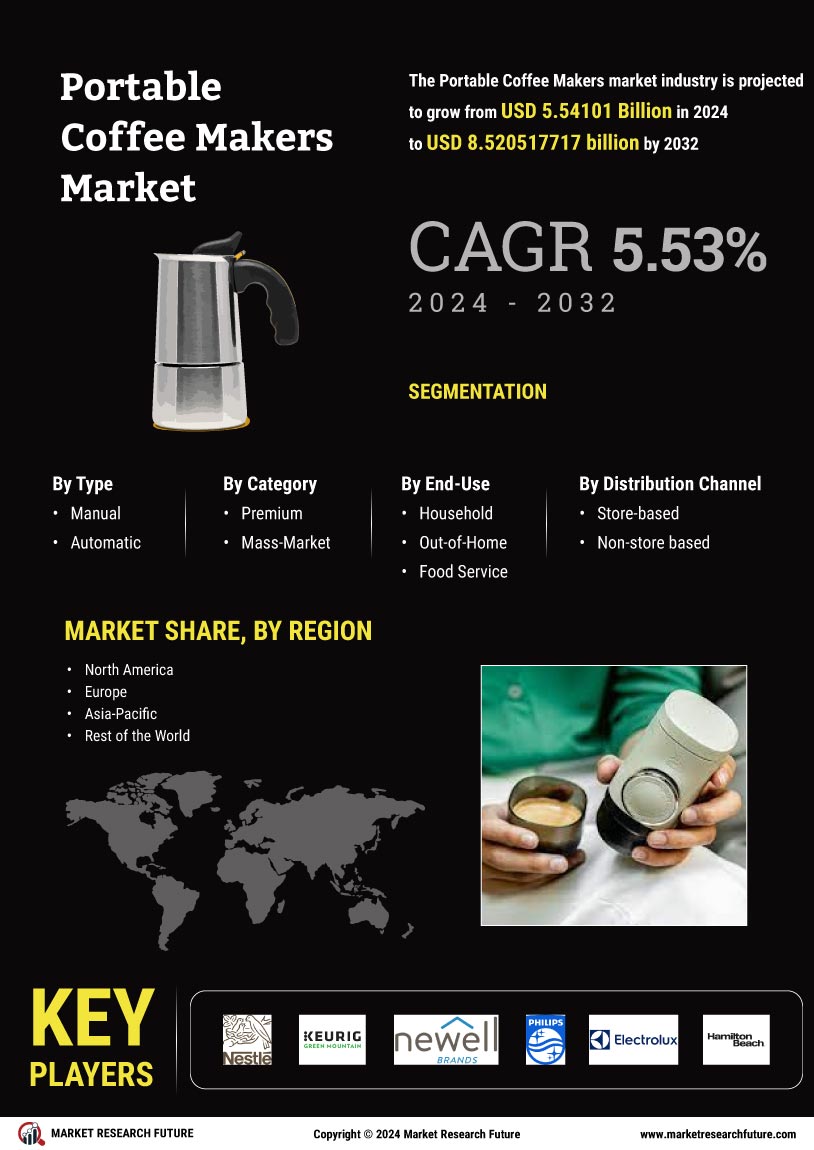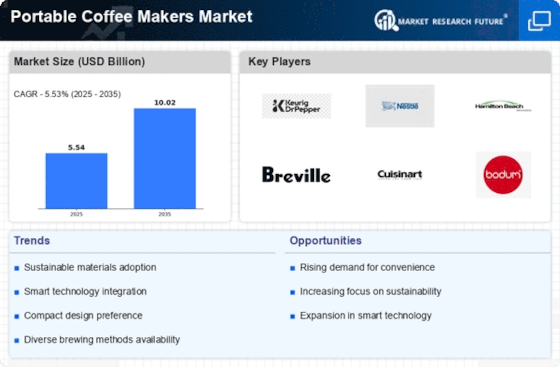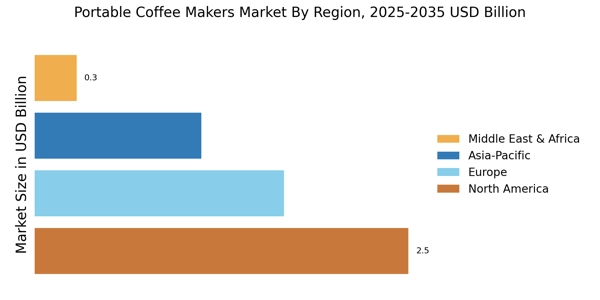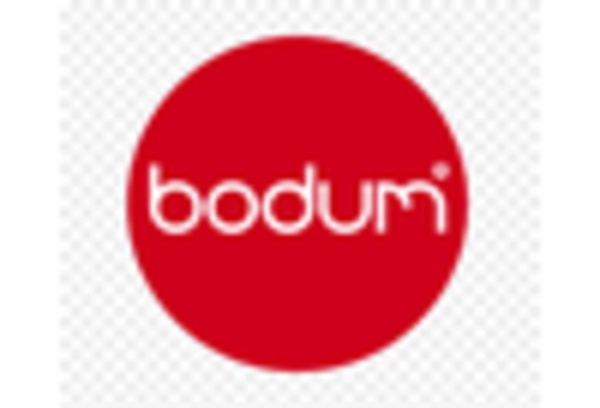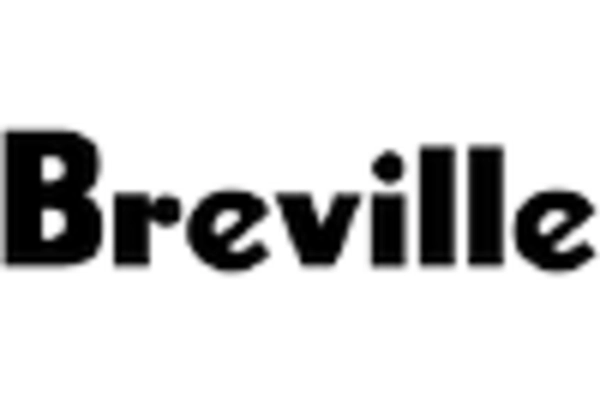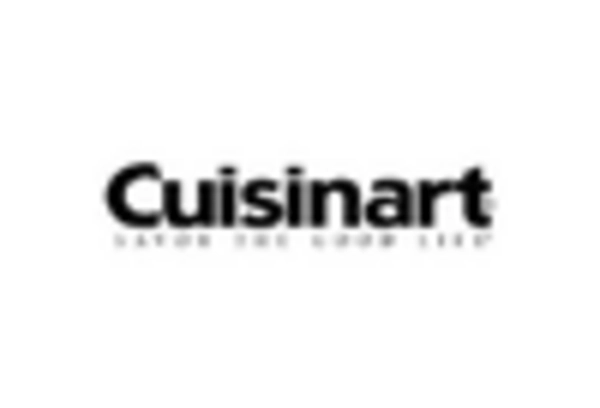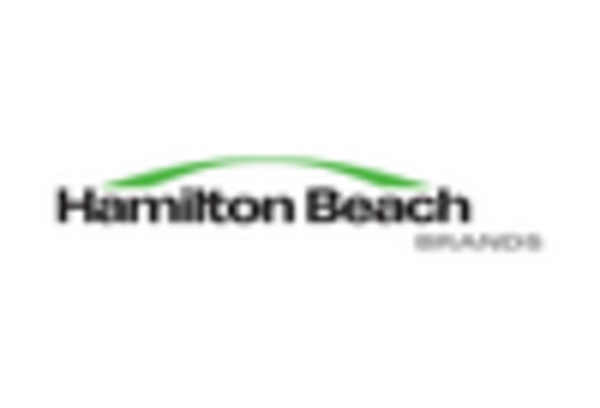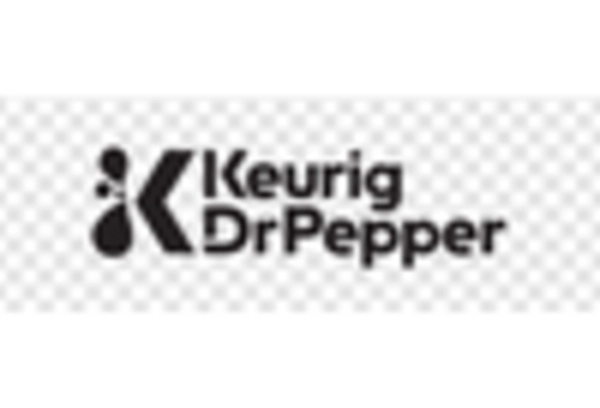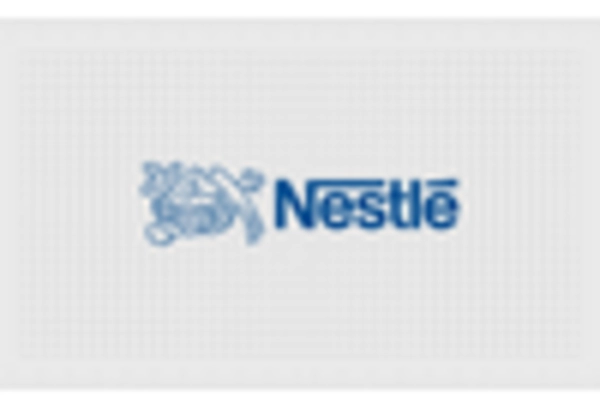Rising Coffee Culture
The Portable Coffee Makers Market is significantly influenced by the rising coffee culture across various demographics. As coffee consumption continues to rise, particularly among younger generations, the demand for portable coffee solutions is likely to increase. Recent statistics indicate that coffee consumption has grown by nearly 3% annually, with a notable preference for specialty coffee. This trend suggests that consumers are not only looking for convenience but also for quality. Portable coffee makers that can deliver barista-style coffee experiences are becoming increasingly popular, catering to the sophisticated tastes of modern coffee enthusiasts.
Sustainability Trends
Sustainability trends are becoming a pivotal driver in the Portable Coffee Makers Market. As environmental awareness grows, consumers are increasingly seeking products that minimize their ecological footprint. Portable coffee makers that utilize eco-friendly materials and energy-efficient technologies are gaining traction. Additionally, the rise of reusable coffee pods and filters aligns with the sustainability movement, appealing to environmentally conscious consumers. Market data suggests that products emphasizing sustainability could see a sales increase of up to 20% in the coming years, reflecting a shift towards responsible consumption in the coffee industry.
Technological Advancements
Technological advancements play a crucial role in shaping the Portable Coffee Makers Market. Innovations such as smart coffee makers, which can be controlled via mobile applications, are gaining traction among tech-savvy consumers. These devices often feature programmable settings, allowing users to customize their brewing preferences. The integration of technology into portable coffee makers is expected to drive market growth, as consumers increasingly seek products that offer both convenience and enhanced functionality. Market analysts predict that the adoption of smart technology in coffee makers could lead to a 15% increase in sales within the next few years.
Focus on Health and Wellness
The Portable Coffee Makers Market is also benefiting from a growing focus on health and wellness. As consumers become more health-conscious, there is an increasing demand for coffee products that align with their lifestyle choices. Portable coffee makers that allow users to brew organic or specialty coffee are gaining popularity, as they offer a healthier alternative to pre-packaged coffee products. This trend is further supported by research indicating that coffee consumption is associated with various health benefits, including improved cognitive function. Consequently, the market for portable coffee makers is likely to expand as consumers prioritize health-oriented options.
Increasing Demand for Convenience
The Portable Coffee Makers Market is experiencing a surge in demand for convenience-driven products. As lifestyles become increasingly fast-paced, consumers seek solutions that allow them to enjoy quality coffee without the need for extensive preparation. This trend is particularly evident among busy professionals and travelers who prioritize efficiency. According to recent data, the portable coffee maker segment is projected to grow at a compound annual growth rate of approximately 8% over the next five years. This growth is indicative of a broader shift towards on-the-go consumption, where consumers are willing to invest in compact and user-friendly devices that enhance their daily routines.
